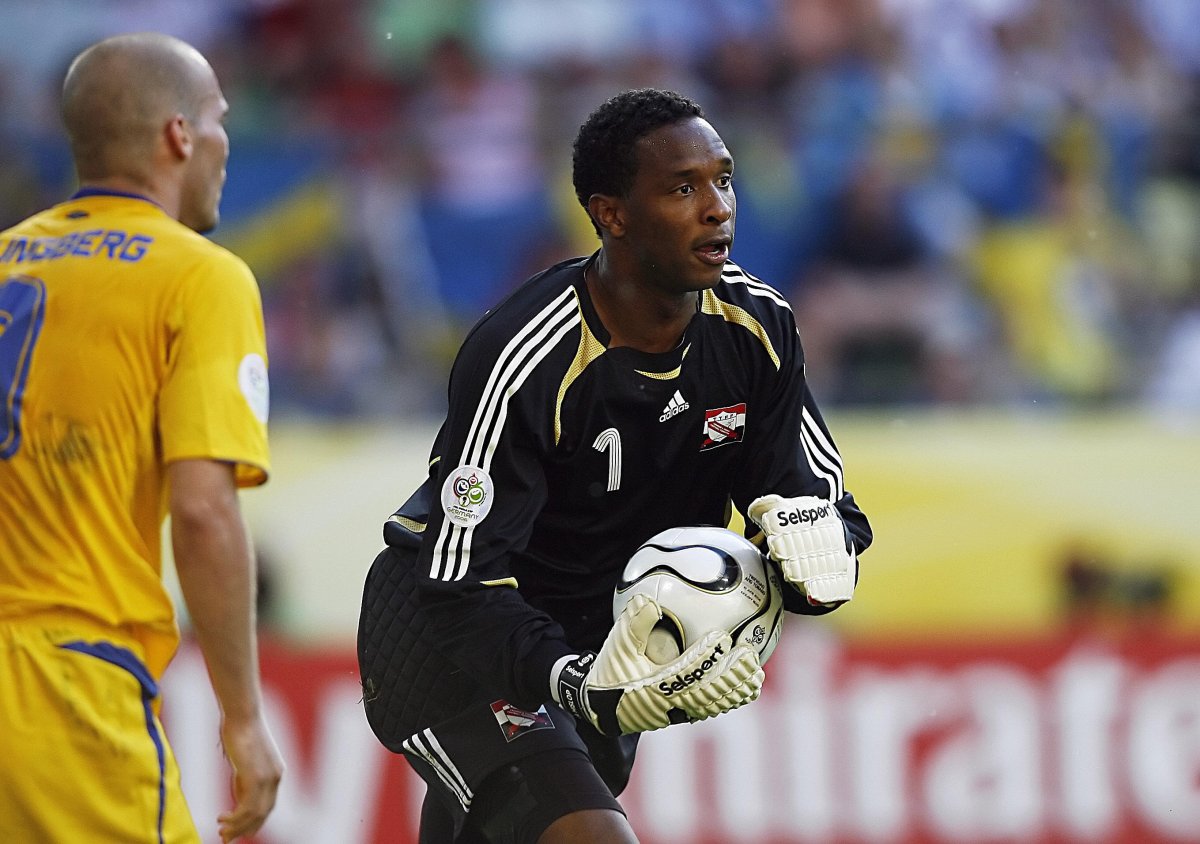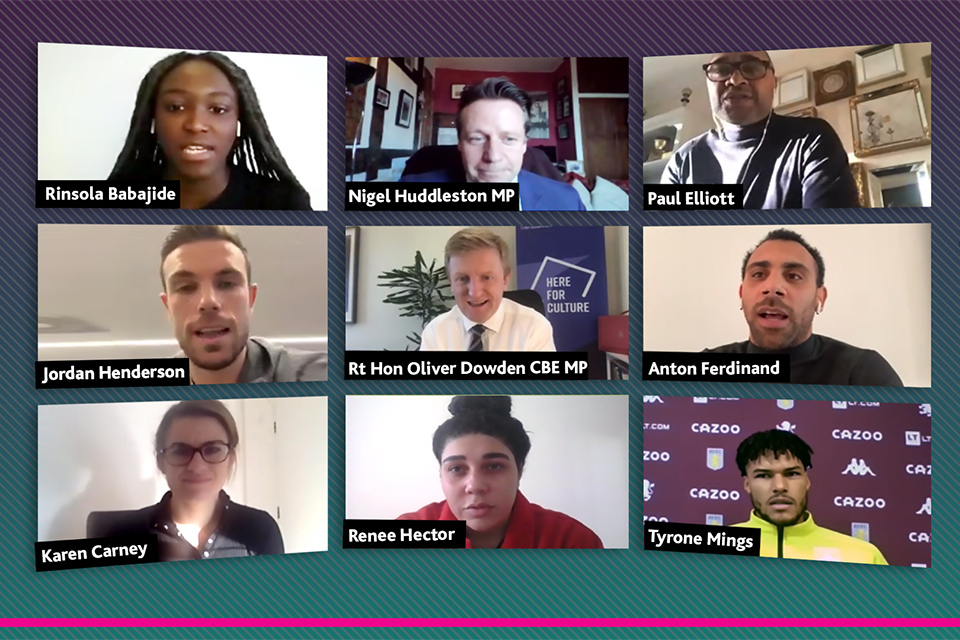When the English Premier League returned to action after the first COVID-19 lockdown in the spring of 2020, it was just three weeks after the killing of George Floyd in Minneapolis.
Despite being an ocean away from the racial turmoil in the United States, players of all races decided to show a unified front by “taking a knee” before each game.
However, on June 22, 2020, when Manchester City hosted local rivals Burnley FC, the teams looked to the skies above the empty Etihad Stadium, and saw a small plane towing a banner that said, “White Lives Matter Burnley.”
It caused outrage and drew condemnation across the sports world, but it was a sign that among the absent fan-base was a group of people who didn’t like what the players were doing.
The rumble of discontent with the push for racial justice appears to have extended well into the pandemic.
In the past few months, barely a week has passed without a new incident of racist abuse being directed at a black or minority ethnic player.
The incidents involve vile insults and racist emojis being directed at players who made a mistake, scored against a fan’s team, or for no apparent reason at all.
An Irish teenager targeted former England star Ian Wright with racist messages after losing in a video game featuring Wright.
Manchester United’s Congolese-born player Axel Tuanzebe responded to racist abuse in January by posting a reel on Instagram reading “My RACE My RELIGION My COLOUR = FOOTBALL”.
Goalkeeper for Crystal Palace Women’s team, Chloe Morgan, believes that the Black Lives Matter movement has provoked a backlash.
“Race issues are now coming to the forefront of agendas. I think it’s more in people’s minds, and I think there is a bit of a reluctance sometimes for people to accept that that’s the way that things are going,” said Morgan, who also works as a full-time lawyer.
“Because there’s so much online presence at the moment, and people are on their phones, I think people are using that as a way to get across their views.”
Morgan says she has been a target of abuse, often after she advocates publicly on racial justice issues, or LGBTQ2 rights.
In January, the Duke of Cambridge, who serves as president of the Football Association, tweeted that the “despicable” abuse “must stop now,” adding that the “responsibility extends to the platforms where so much of this activity now takes place.”
In February, the soccer players’ union in England and Wales, the Professional Footballers’ Association (PFA), wrote an open letter to the CEOs of Facebook and Twitter, Mark Zuckerberg and Jack Dorsey, asking that the social media giants do a better job on filtering, blocking and removing abusive messages.
A day later, Facebook responded, saying it is making changes to Instagram, a platform it has owned since 2012.
It said that instead of blocking an abusive user from sending direct messages (DMs) for a set period of time, it would ban repeat offenders permanently.
“If someone continues to send violating messages, we’ll disable their account. We’ll also disable new accounts created to get around our messaging restrictions, and will continue to disable accounts we find that are created purely to send abusive messages.”
Global News asked Facebook how it will identify new accounts created to get around messaging restrictions.
Facebook did not respond directly to that question, but a spokesperson wrote, “we’re working on a new feature designed to help prevent people from seeing abusive DMs in the first place. We know there is more to be done and we will continue to work with the clubs, players and wider industry to collectively tackle this issue.”
More to do
Shaka Hislop agrees with Facebook that there is more to do.
The former Trinidad and Tobago Men’s National Team goalkeeper played in the English Premier League for more than a decade, before moving to Major League Soccer in 2006.
While living in England, he set-up an anti-racism education charity called Show Racism the Red Card.
“Racism and abuse of players has been, sadly, a part of our game for as long as we can remember, ever since Black players first started in the game,” said Hislop from his home in Boston.
“You are now seeing that abuse moved to online, because of the anonymity that is afforded to so many of these social media platforms.”
For Hislop and many other anti-racism activists, that online cloak of anonymity is a huge part of the problem.
“They have to do more about people who are just making these vague online profiles and how they can approach that and dis-empower people from simply taking on a name and personality that that’s not their own, to spread this hate,” Hislop said.
“Too many of the social media companies base their worth, their profitability, who they are, on just the raw numbers — how many users they have and how many tweets or posts are sent in a day — without any regard for what those posts may contain.”
The PFA’s open letter to Facebook and Twitter also called for improved verification, but anonymity is central to the free-speech ethos of platforms like Twitter and Facebook, and they show no sign of introducing widespread identity verification for users.
The U.K. government, however, says it wants to intervene, too.
Oliver Dowden, the British secretary of state for digital, culture, media and sport, met with current and former players to hear their experiences of discrimination.
Dowden says the government’s planned Online Harms Bill will be tabled later this year and will hold social media companies more accountable.
In an interview with the BBC, Dowden said he would consider “criminal sanctions” and “large fines” against companies that fail to act on racism.
Read more:
(Dec. 22, 2019) Allegations of racial abuse mar English soccer match, prompt calls for inquiry
These recent incidents involving soccer stars simply highlight an issue that has increasingly plagued social media users for a decade or more.
Ged Grebby, who co-founded Show Racism the Red Card with Hislop, says the racism being directed at soccer players is just a symptom of a greater problem.
“In the last 10 years, British society has been going backwards. There’s been a rise of Islamophobia and there’s been a rise of anti-immigration rhetoric,” Grebby said.
“It’s very much society’s problem, racism, not football’s, but it’s coming back at the moment in social media.”
© 2021 Global News, a division of Corus Entertainment Inc.
Source link




